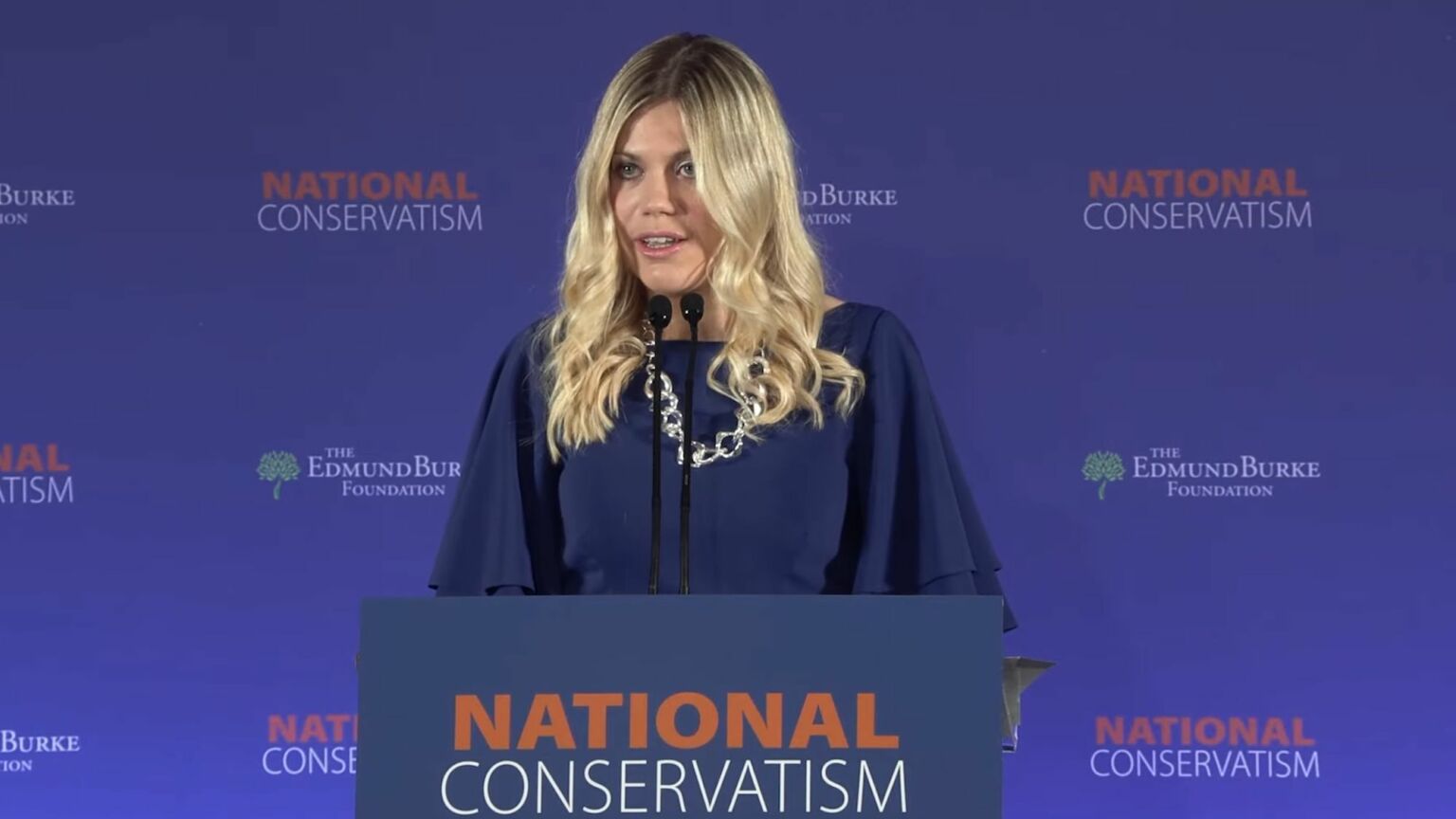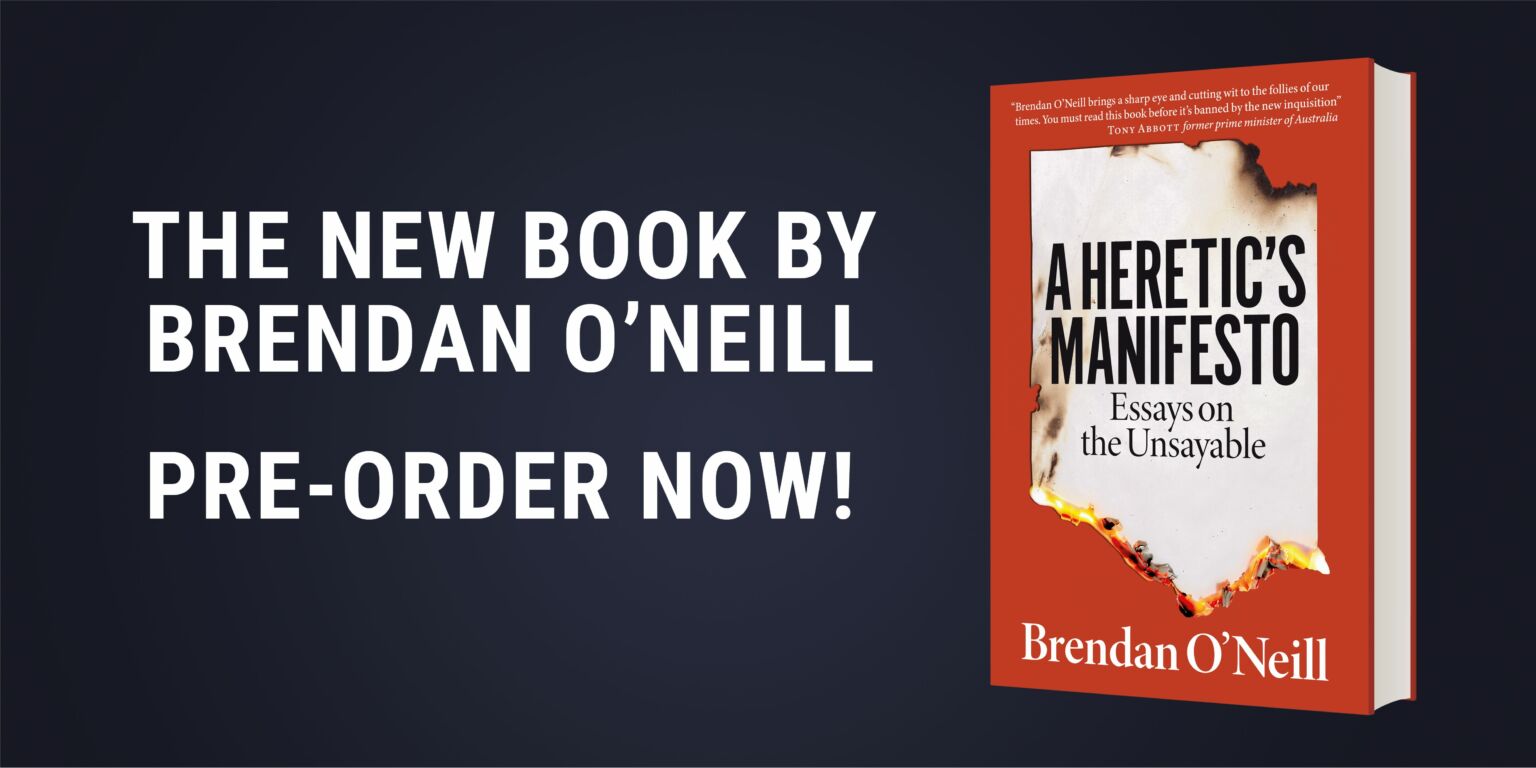The left is trivialising anti-Semitism – again
The attempt to present NatCon speakers as anti-Semites is despicable and dangerous.

Last week, I attended and spoke at the National Conservatism (NatCon) conference in London. Over three days of discussions, speaker after speaker raised concerns about the issues at stake in the culture war. What they had to say could hardly have been more at odds with the views and values of our political and cultural establishment.
I wouldn’t say I was surprised by the reaction of the mainstream media to the conference. Predictably, NatCon was widely disparaged and denounced as a gathering of right-wing lunatics. However, what did surprise me was the media’s willingness to distort the arguments made by the speakers.
Bizarrely, three of the speakers were accused of promoting anti-Semitism. Conservative MP Miriam Cates was essentially called an anti-Semite for her use of the term ‘Cultural Marxism’ in her speech. Author and commentator Douglas Murray was accused of minimising the Holocaust after he made a joke about the behaviour of the Germans in the First and Second World Wars. And historian David Starkey was viciously attacked for suggesting that supporters of Black Lives Matter are making a big issue out of slavery because they are jealous of the moral authority of the Holocaust.
You don’t have to agree with the views espoused by these three speakers – it is entirely legitimate to disagree with them for being wrong or insensitive. But these accusations of anti-Semitism are totally groundless. They are motivated by an impulse to police what can and cannot be said. Worse still, they trivialise the scourge of anti-Jewish hatred. This tendentious weaponisation of the charge of anti-Semitism can only empower genuine anti-Semites who will find it easier to dismiss their critics as disingenuous.
As someone who has fought against anti-Semitism and racism all my life, I find it quite upsetting that prominent people are willing to instrumentalise accusations of anti-Semitism. One wonders what Lord Mann, the UK government’s adviser on anti-Semitism, was smoking when he condemned Miriam Cates’s speech as anti-Semitic. In her address, she complained that ‘Cultural Marxism’ in the education system is ‘systematically destroying our children’s souls’. According to Mann, the term ‘Cultural Marxism’ is associated with anti-Semitism and is ‘just not appropriate for a parliamentarian’ to use.
To be sure, Cultural Marxism is a less-than-helpful way to describe the woke values that are colonising Western institutions. The term is a rather forced attempt to connect this 21st-century cultural movement to the brutality of the Communist regimes of the 20th century. It is also true that some genuine racists have developed conspiracy theories connecting Jewish people to the rise of so-called Cultural Marxism. But that does not make the term inherently anti-Semitic. There was nothing in Cates’s speech to suggest she was making this association.
The accusations against Douglas Murray were similarly spurious. In an after-dinner speech, Murray lamented the modern tendency to vilify national pride. ‘I see no reason why every other country in the world should be prevented from feeling pride in itself, because the Germans mucked up twice in a century’, Murray joked. For this, he was branded ‘despicable’ and an ‘openly racist individual’ by the liberal-left Twitterati. Advocacy group Hope Not Hate said that Murray’s remarks amounted to a ‘serious minimisation of the abhorrent, planned nature of the Holocaust’.
Of course, Murray’s point was clearly that German militarism has undermined the moral authority of nationalism. If anything, it was a joke at Germany’s expense. I was in the audience. Along with everyone else there, I never imagined that he was trying to minimise the Holocaust.
Later on in the conference, historian David Starkey claimed that the left is determined to minimise the importance of the Holocaust by trying to present the transatlantic slave trade as a much graver crime. ‘This is why Jews are under such attack from the left, there’s jealousy, fundamentally’, he added.
Daniel Sugarman, director of public affairs for the Board of Deputies of British Jews, accused Starkey of seeking to ‘drive a wedge between communities’. Christian Wakeford, the MP for Bury South, which has a large Jewish community, went further, condemning Starkey’s rhetoric as ‘deplorable and anti-Semitic’.
I have no privileged insight into what motivated Starkey to make his statement. Whether or not the left is motivated by ‘jealousy’ of what he describes as the ‘moral primacy of the Holocaust’ is a matter of interpretation. But what is not in any question is that many on the left, whether wittingly or not, have ended up downplaying the Holocaust in their efforts to denounce slavery. Indeed, these days the Holocaust is frequently talked about as a product or outgrowth of colonialism. Others suggest that ‘colonialism was worse than Nazism’. ‘Imagine Nazis, but for centuries. That’s our experience’, said one commentator in 2020. It is difficult to avoid the conclusion that Starkey was denounced for daring to raise an uncomfortable fact – namely, that the unique moral status of the Holocaust really is being undermined today.
It is a depressing sign of the times that the mainstream media have refused to engage with the substance of the issues raised at the National Conservatism conference, where speakers addressed everything from the culture war to family policy and the role of the state in the economy. Instead of adding to the debate with disagreement and criticism, the media have tried to delegitimise and discredit the speakers by falsely branding them as a threat to Jewish people.
Tackling anti-Semitism is not their concern here. The real aim is to prevent the speakers at NatCon from having a voice and from potentially influencing the public. This also acts as a warning shot to others who might be tempted to step out of line. Those of us on the ‘wrong’ side of the culture war cannot let ourselves be cowed by this dynamic. This battle is far too important.
Frank Furedi is the executive director of the think-tank, MCC-Brussels.
Picture by: YouTube / National Conservatism.
To enquire about republishing spiked’s content, a right to reply or to request a correction, please contact the managing editor, Viv Regan.










Comments
Want to join the conversation?
Only spiked supporters and patrons, who donate regularly to us, can comment on our articles.